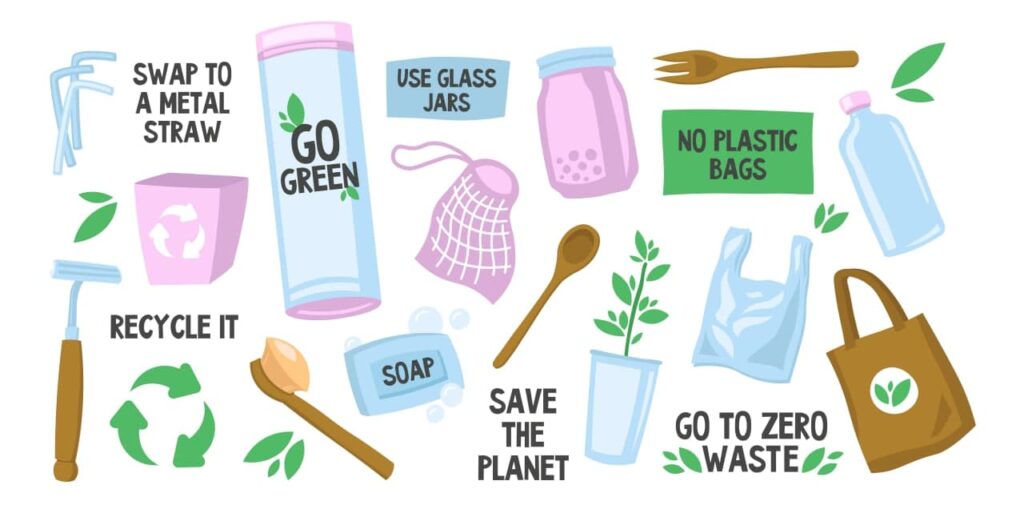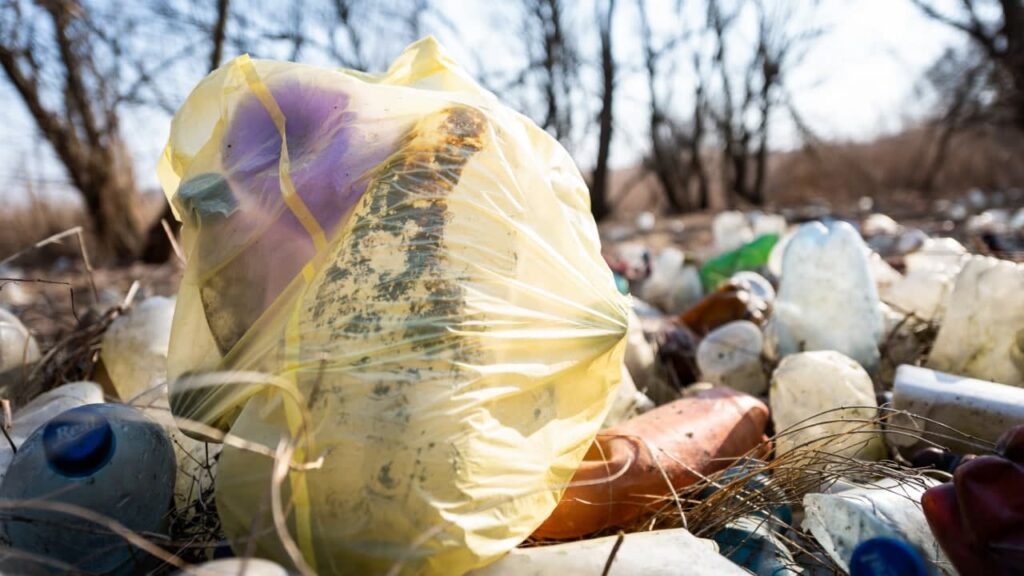In the ever-evolving world of sustainable living and eco-conscious choices, biodegradable garbage bags have emerged as a vital solution to reduce our environmental footprint. These remarkable bags are transforming the way we handle waste disposal, providing a greener alternative to conventional plastic bags. In this comprehensive article, we will explore the incredible journey of biodegradable garbage bags, from their inception to their widespread adoption, and discuss why they are essential for a more sustainable future.
Table of Contents
Conventional Garbage Bags
Conventional garbage bags, often made from petroleum-based plastics, have been a ubiquitous part of our daily lives for decades. These bags are designed to be durable and waterproof, making them ideal for containing household waste and keeping it separate from the environment. However, their widespread use has led to significant environmental concerns.
One of the primary drawbacks of conventional garbage bags is their environmental impact. Since they are typically made from non-biodegradable materials, these bags can take hundreds of years to decompose in landfills. This slow decomposition process contributes to the buildup of plastic waste in our ecosystems, harming wildlife and polluting our oceans.
Despite their convenience, conventional garbage bags also pose challenges in recycling facilities. Their presence in recycling bins can contaminate recyclables, making the recycling process less efficient. This contamination adds to the cost and complexity of waste management systems, highlighting the need for more sustainable alternatives.
The Birth of Biodegradable Garbage Bags
Biodegradable garbage bags owe their existence to the pressing need for eco-friendly waste management solutions. Traditional plastic bags have long been a significant contributor to environmental degradation due to their non-biodegradable nature. Recognizing this issue, innovators and environmentalists set out to create a more sustainable alternative.
Biodegradable garbage bags are typically made from materials like cornstarch, potato starch, or polylactic acid (PLA). These materials break down naturally over time, reducing the long-lasting impact of plastic waste on our ecosystems. The biodegradable bags not only decompose faster but also leave behind fewer harmful residues.
Environmental Impact Reduction
One of the most compelling reasons to embrace biodegradable garbage bags is their positive environmental impact. Traditional plastic bags can take hundreds of years to decompose fully, clogging landfills, polluting oceans, and harming wildlife in the process. In contrast, biodegradable bags break down much faster, minimizing these adverse effects.
When these bags decompose, they release fewer harmful chemicals, making them a more sustainable choice for the environment. This reduction in pollution and environmental harm is a significant step towards mitigating the global plastic crisis.



Benefits for Home and Business Use
Biodegradable garbage bags offer practical advantages for both households and businesses. Let’s delve into some of the key benefits:
Eco-Friendly Disposal
Using biodegradable garbage bags allows individuals and businesses to participate actively in reducing their carbon footprint. Knowing that the bags will decompose naturally, users can dispose of their waste with a clear conscience, knowing they are contributing to a healthier planet.
Compostable Material
Many biodegradable garbage bags are also compostable. This means that, along with reducing landfill waste, they can be incorporated into compost piles, enriching the soil and supporting sustainable agriculture.
Regulatory Compliance
In some regions, regulations are being put in place to restrict or ban traditional plastic bags due to their environmental impact. Using biodegradable bags ensures compliance with such regulations, avoiding potential fines or legal issues.
Reputation and Brand Image
For businesses, adopting eco-friendly practices is not only a moral obligation but also a valuable marketing strategy. Using biodegradable garbage bags demonstrates corporate responsibility and can enhance a company’s reputation in the eyes of environmentally-conscious consumers.
Versatility and Durability
Biodegradable garbage bags are not just environmentally friendly; they are also highly practical. They are available in various sizes and strengths, making them suitable for a wide range of applications. Whether you need them for kitchen waste, outdoor cleanup, or even pet waste disposal, these bags can handle the job effectively.
Contribution to a Greener Future
By switching to biodegradable garbage bags, you play a crucial role in supporting a sustainable and greener future. Your choice to use these bags reduces the demand for traditional plastic bags and encourages the production of eco-friendly alternatives. It’s a small yet impactful step towards a cleaner and healthier planet.
Challenges and Considerations
While biodegradable garbage bags offer numerous advantages, it’s essential to be aware of some considerations:
Decomposition Time
The decomposition time of biodegradable bags can vary depending on factors like temperature and humidity. While they break down faster than traditional plastic bags, they may still take several months or years in certain conditions.
Cost Considerations
One of the significant challenges in the adoption of biodegradable garbage bags is their relatively higher cost compared to conventional plastic bags. Biodegradable bags are often made from renewable resources and eco-friendly materials, which can be more expensive to produce. This cost factor can deter some consumers and businesses from making the switch, especially in price-sensitive markets. Addressing this challenge requires finding innovative ways to reduce production costs and make biodegradable options more affordable for a broader range of users.
Consumer Awareness and Education
Many consumers are still unaware of the benefits of biodegradable garbage bags and may not fully understand the environmental impact of traditional plastic bags. There is a need for extensive education and awareness campaigns to inform the public about the advantages of biodegradable alternatives. Additionally, consumers need guidance on proper disposal methods to ensure that these bags decompose as intended. Bridging this knowledge gap is essential to encourage wider adoption.
Infrastructure and Collection Systems
The successful adoption of biodegradable garbage bags also relies on supportive waste management infrastructure and collection systems. These bags require specific conditions to decompose effectively, such as exposure to sunlight and adequate oxygen. Municipalities and waste disposal facilities must adapt to accommodate these requirements. In areas where such infrastructure is lacking, it can be a considerable hurdle to the widespread use of biodegradable bags. Developing and upgrading waste management systems to accommodate biodegradable waste is a critical step in overcoming this challenge.
While biodegradable garbage bags offer promising environmental benefits, several challenges hinder their widespread adoption. Addressing cost concerns, educating consumers, and upgrading infrastructure are all crucial steps in overcoming these obstacles and promoting the shift towards a more sustainable and eco-friendly waste management solution.



Legislation Regarding the Use
Italy’s Pioneering Legislation:
Italy has been a pioneer in the adoption of laws promoting the use of biodegradable garbage bags. In 2010, the Italian government implemented a nationwide ban on non-biodegradable plastic bags. This groundbreaking legislation not only restricted the use of traditional plastic bags but also encouraged the widespread adoption of biodegradable alternatives. As a result, Italians have embraced biodegradable garbage bags in their households, contributing significantly to a reduction in plastic waste and environmental impact.
France’s Eco-Friendly Initiatives:
France is another country that has taken significant steps to promote the use of biodegradable garbage bags. In 2016, the French government passed a law prohibiting the distribution of plastic bags at checkout counters in supermarkets. This regulation has since been expanded to include biodegradable bags made from renewable materials, ensuring that they meet specific eco-friendly standards. French consumers and businesses have embraced these biodegradable alternatives, aligning with the nation’s commitment to reducing plastic pollution and fostering sustainability.
United States’s Patchwork of Local Regulations:
In the United States, the adoption of biodegradable garbage bags is primarily regulated at the local level. While there is no federal mandate regarding their use, numerous states and municipalities have implemented laws and ordinances encouraging or requiring the use of biodegradable bags for specific purposes. For instance, some cities have enacted laws promoting the use of biodegradable bags for yard waste collection to facilitate composting. These localized efforts reflect the diverse and evolving approach to biodegradable bag usage in the U.S., with some regions embracing these eco-friendly alternatives more enthusiastically than others.
Countries like Italy and France have implemented robust legislation to promote the use of biodegradable garbage bags, leading to significant reductions in plastic waste and environmental impact. In contrast, the United States has seen a patchwork of regulations at the local level, reflecting a more decentralized approach to biodegradable bag adoption. These varying approaches highlight the global effort to address plastic pollution and promote sustainable waste management practices through the use of biodegradable alternatives.
Conclusion
Biodegradable garbage bags represent a significant step toward a more sustainable and environmentally conscious future. Their ability to decompose naturally, reduce pollution, and support eco-friendly waste management practices makes them an indispensable tool in the fight against plastic pollution.
By choosing biodegradable garbage bags for your home or business, you actively contribute to a cleaner and healthier planet. Embracing these eco-friendly alternatives is not just a choice; it’s a responsibility that each of us can fulfill to ensure a better world for generations to come.

